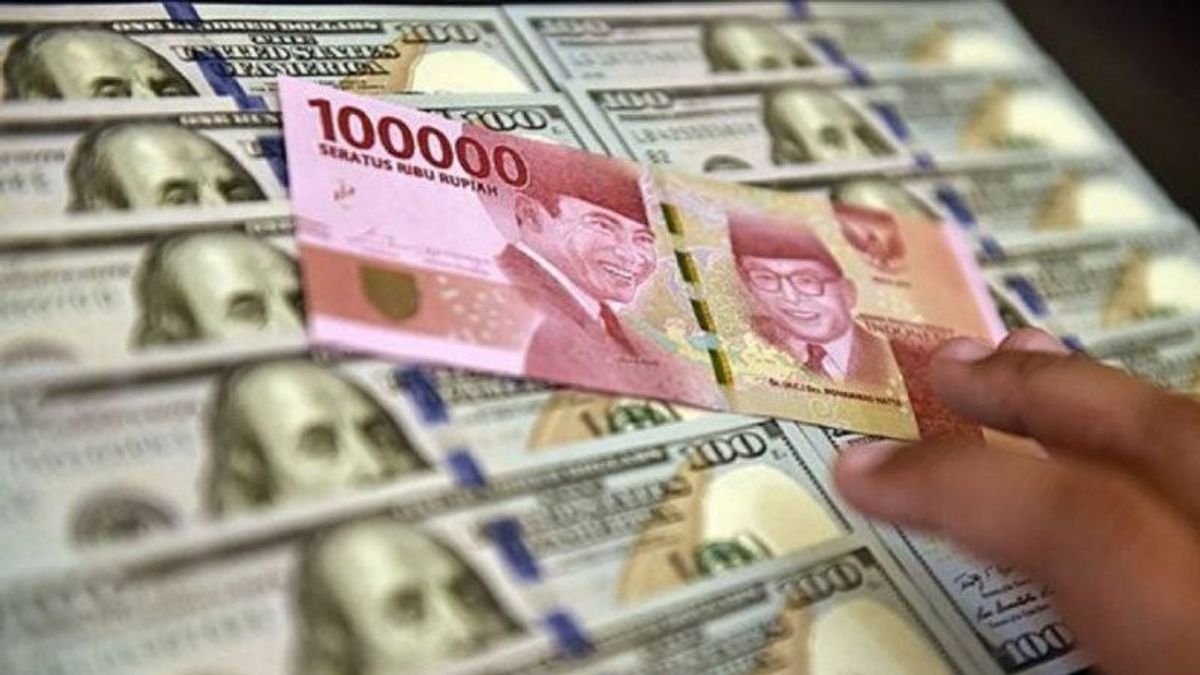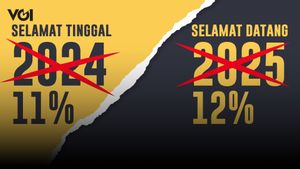JAKARTA Bank Indonesia (BI) reported that Indonesia's foreign debt (ULN) position in July 2023 was 396.4 billion US dollars. This amount increased by 100 million US dollars from the position in June 2023 which amounted to 396.3 billion US dollars.
Despite the increase, Head of the BI Communication Department Erwin Haryono said foreign debt remained under control.
"The development of foreign debt in July 2023 was also influenced by the factor of weakening the US dollar currency against the majority of global currencies," he said in a press release today, Friday, September 15.
According to Erwin, the external debt consists of government external debt (including BI) amounting to 193.2 billion US dollars and the private sector 193.9 billion US dollars.
In detail, Erwin explained that government external debt grew 4.1 percent on an annual basis or year on year (yoy). He said, these developments were influenced, among other things, by the withdrawal of foreign loans to support program and project financing.
"The government continues to be committed to managing external debt carefully, efficiently, and accountably, including maintaining credibility in fulfilling basic payment obligations and interest on time," he said.
Erwin added, as one of the components in the APBN financing instrument, foreign debt plays an important role in supporting the government's efforts to finance the productive sector and prioritize spending so as to support and keep Indonesia's economic growth solid amid uncertainty in global economic conditions.
"The government's external debt position is relatively safe and under control considering that almost all of them have long-term tenors with a share reaching 99.9 percent of the total," he said.
Meanwhile, private external debt, which amounted to 193.9 billion US dollars, recorded a contraction of minus 5.9 percent yoy, mainly due to a decrease in liabilities from financial companies.
"Based on the economic sector, the largest private external debt comes from the manufacturing sector, electricity procurement, gas, financial services and insurance, as well as mining and quarrying, with a share of 78.1 percent of the total," he said.
SEE ALSO:
Erwin ensured that the structure of Indonesia's external debt remained healthy, supported by the application of prudential principles in its management.
This is reflected in the ratio of Indonesia's external debt to Gross Domestic Product (GDP) which fell to 29.2 percent in July 2023 from 29.3 percent in June 2023.
"In order to keep the external debt structure healthy, Bank Indonesia and the government continue to strengthen coordination in monitoring the development of external debt, supported by the application of prudential principles in management," he added.
"The role of external debt will also continue to be optimized in supporting development financing and encouraging sustainable national economic growth, by minimizing risks that can affect economic stability," Erwin concluded.
The English, Chinese, Japanese, Arabic, and French versions are automatically generated by the AI. So there may still be inaccuracies in translating, please always see Indonesian as our main language. (system supported by DigitalSiber.id)
















